A Photo Of Jupiter. Took By Voyager With VGISS On February 01, 1979 At 23:13:23. Detail Page On OPUS

A photo of Jupiter. Took by Voyager with VGISS on February 01, 1979 at 23:13:23. Detail page on OPUS database.
More Posts from Intergalacticnerd and Others

Astron'art ^_^


February 7, 1984 – Astronauts Bruce McCandless II and Robert L. Stewart make the first untethered spacewalk using the Manned Maneuvering Unit (MMU) during mission STS-41B of the Space Shuttle Challenger.
(NASA)

For the first time, astronomers have observed bursts of visible light being released by a black hole as it swallows matter from nearby stars.
These flashes of light, which lasted between several minutes to a few hours, were seen coming from a black hole in the Cygnus constellation, located about 7,800 light-years away from Earth. Incredibly, some of the flashes were so bright, the team says amateur astronomers could see them with a modest 20-cm telescope.
“We find that activity in the vicinity of a black hole can be observed in optical light at low luminosity for the first time,” astronomer and lead researcher, Mariko Kimura from Kyoto University in Japan, told Charles Q. Choi at Space.com.
“These findings suggest that we can study physical phenomena that occur in the vicinity of the black hole using moderate optical telescopes without high-spec X-ray or gamma-ray telescopes.”
Continue Reading.
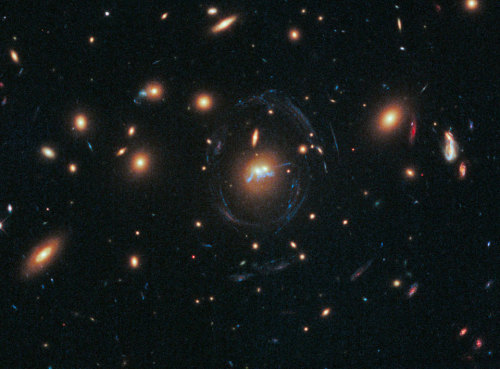
A Blue Bridge of Stars between Cluster Galaxies designated SDSS J1531+3414

Using the advanced adaptive optics system on the Gemini South telescope, astronomers have imaged a beautiful stellar jewel-box – a tightly packed cluster of stars that is one of the few places in our galaxy where astronomers think stars can actually collide. Stellar collisions are important because they can provide the key to understand the origin of exotic objects that cannot be interpreted in terms of the passive evolution of single stars. read more here credit: Gemini Observatory/AURA
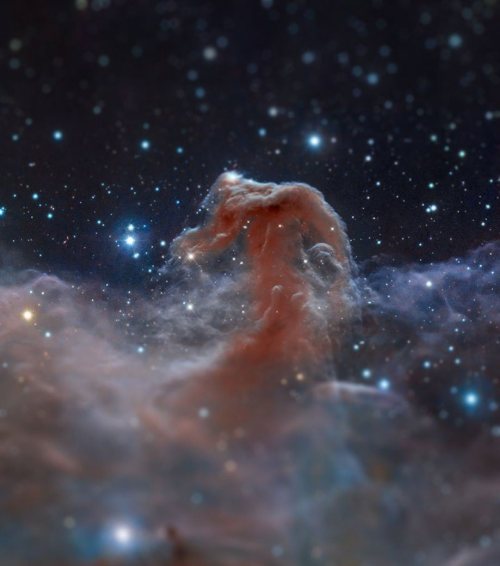
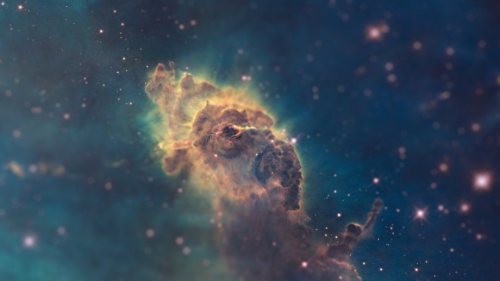
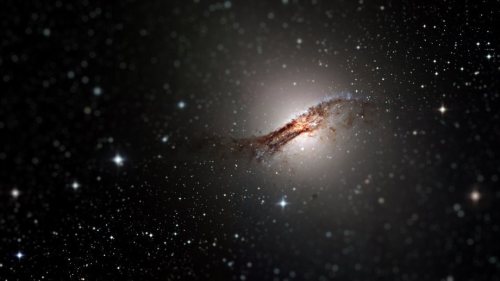
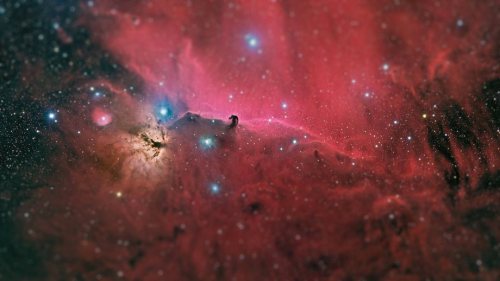
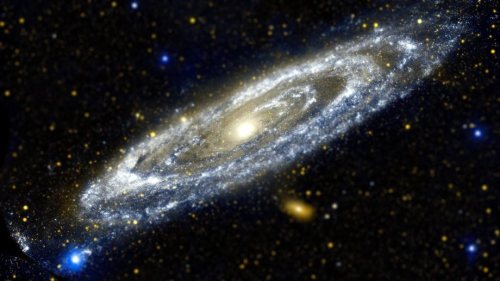
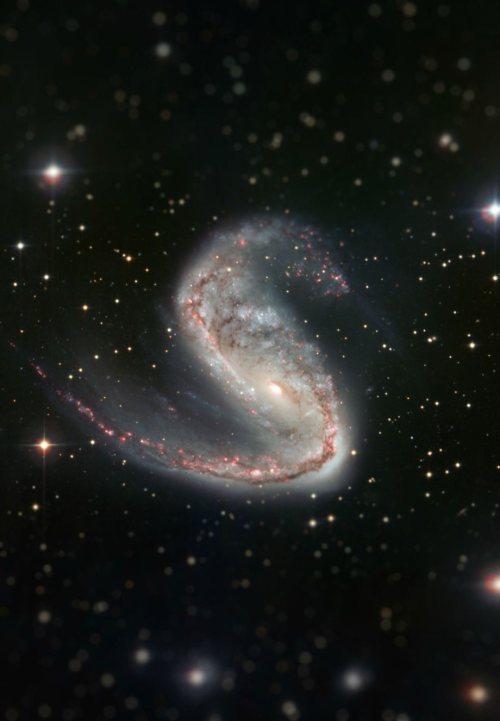
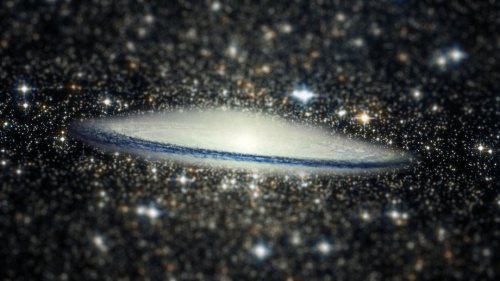
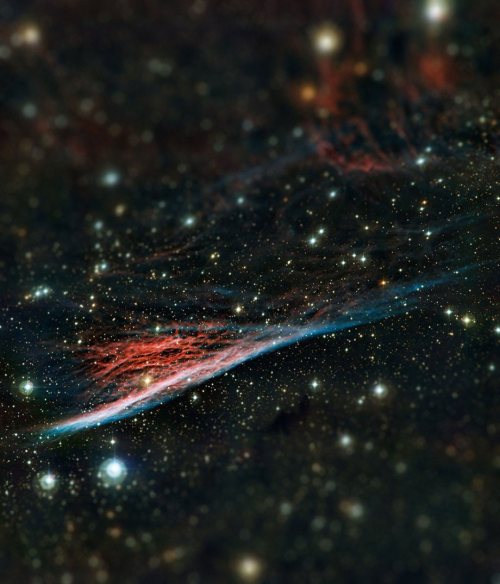
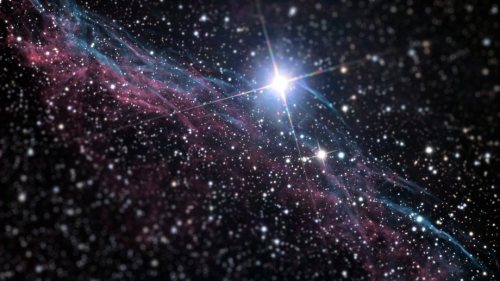
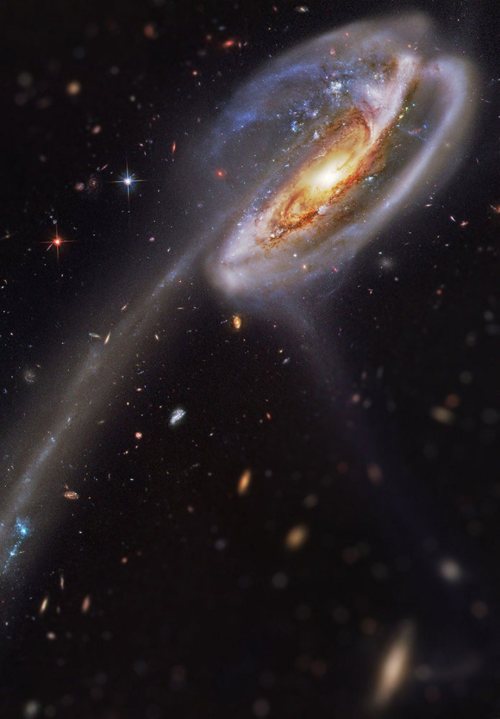
Tilt Shift filters applied to Hubble Space Telescope photos.
Tilt Shift filters make the foreground and background of images more blurred, changing the depth of field of these images.
(x)
[Click for more interesting science facts and gifs]

The Belt of Venus is a pink glowing arch seen across the sky when the shadow of the Earth’s translucent atmosphere casts a shadow back upon itself.

Astronaut Leland Melvin includes his rescued dogs in best NASA portrait ever.
By now you’ve probably heard the news that gravitational waves have been directly observed for the first time ever. Are you excited?

Our friends at PBS Space Time are pretty excited about it too, and they’ve put together an awesome video explaining the physics behind this discovery and why it’s so important.

-
 nautical-antiques reblogged this · 8 years ago
nautical-antiques reblogged this · 8 years ago -
 rebeccadt liked this · 8 years ago
rebeccadt liked this · 8 years ago -
 rebeccadt reblogged this · 8 years ago
rebeccadt reblogged this · 8 years ago -
 zoori-i liked this · 8 years ago
zoori-i liked this · 8 years ago -
 noahtsunami liked this · 8 years ago
noahtsunami liked this · 8 years ago -
 nautical-antiques liked this · 8 years ago
nautical-antiques liked this · 8 years ago -
 intergalacticnerd reblogged this · 8 years ago
intergalacticnerd reblogged this · 8 years ago -
 seekbruno-blog reblogged this · 8 years ago
seekbruno-blog reblogged this · 8 years ago -
 seekbruno-blog liked this · 8 years ago
seekbruno-blog liked this · 8 years ago -
 hellospacebot reblogged this · 8 years ago
hellospacebot reblogged this · 8 years ago
"Astronomy compels the soul to look upwards and leads us from this world to another." - Plato
147 posts